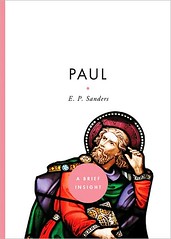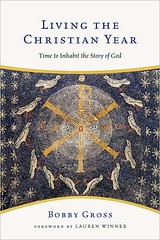the (re)public house | Brewed according to the Rheinheitsgebot Purity Law of 1516.
If I could recommend one book to people on basic reformed theology, it would be Michael Horton's Putting Amazing Back into Grace (Baker Books). I kid you not, I would get everyone to read it if I could. It is the best book for an introduction into reformed theology. Actually, it's great no matter how long you've been studying theology. I read this book years ago, well after already dissecting the Canons of Dort. Anyway, It lays everything out so clearly and speaks the gospel that most have now aborted from their churches. You should read it and recommend it to anyone interested.
That aside, I thought I'd share a great quote that I can across this morning. Don't worry, Horton doesn't harp on eschatology (thank God), waiting until the last chapter to discuss it. I thought this was great, and for those who know where I'm at (and some are there too), you'll hopefully appreciate it. Actually, I hope you find it truthful.
'Lewis Sperry Chafer, founder of Dallas Theological Seminary, argued "It is obvious that, apart from the knowledge of dispensation truth, the believer will not be intelligently adjusted to the present purpose and will of God in the world." That, of course, was a curious and bold remark considering that "dispensation truth" was never held anywhere in the Christian church until the late nineteenth century. The churches of my youth required adherence to dispensational premillennialism as though it were the test of one's faith. There were even instances in which the statement of faith did not include definitions of God, Christ, or justification, but explained the dispensational, pretribulation-rapture point of view with missionary zeal. Dominating Bible and prophecy conferences, and even a good number of weekly sermons, dispensationalism has overshadowed, and in some cases replaced, the gospel itself in the minds of many of us who come from this tradition.
Christians are not to divide over such peripheral matters as the grace of God and human activity, we are told, and yet, to deny the rapture (which is mentioned nowhere in Scripture) marks a heretical departure.' (241)
That aside, I thought I'd share a great quote that I can across this morning. Don't worry, Horton doesn't harp on eschatology (thank God), waiting until the last chapter to discuss it. I thought this was great, and for those who know where I'm at (and some are there too), you'll hopefully appreciate it. Actually, I hope you find it truthful.
'Lewis Sperry Chafer, founder of Dallas Theological Seminary, argued "It is obvious that, apart from the knowledge of dispensation truth, the believer will not be intelligently adjusted to the present purpose and will of God in the world." That, of course, was a curious and bold remark considering that "dispensation truth" was never held anywhere in the Christian church until the late nineteenth century. The churches of my youth required adherence to dispensational premillennialism as though it were the test of one's faith. There were even instances in which the statement of faith did not include definitions of God, Christ, or justification, but explained the dispensational, pretribulation-rapture point of view with missionary zeal. Dominating Bible and prophecy conferences, and even a good number of weekly sermons, dispensationalism has overshadowed, and in some cases replaced, the gospel itself in the minds of many of us who come from this tradition.
Christians are not to divide over such peripheral matters as the grace of God and human activity, we are told, and yet, to deny the rapture (which is mentioned nowhere in Scripture) marks a heretical departure.' (241)

twitter.
comments.
matthew.
photo.
local favorites.
friends.
- Bizzaro World (Liz)
- blake burris (Blake)
- candidly katie (Katie)
- dandeelines (Dan & Diedra)
- drank the water (Veronica)
- dropping swords (John B.)
- e blinks (Erynn)
- glades of light (Patrick)
- grace & peace (Dan)
- grand larseny (Daniel)
- hanging with the hammacks (Adam & Sara)
- heytyson (Tyson)
- hi i am matt (Matt)
- Idaho Heart (Mike)
- It's Chinese to Me (John R.)
- Jay's Blog (Jay)
- John McGee Live (John McG.)
- Let All The Earth... (Trey)
- Love on the Internet (Creth)
- Ms Rory in the Heart of Texas (The Badrina Family)
- Mission and the Church (Will)
- Mudd between my toes (Ryan)
- Performing the Faith (Ben)
- Press the Star Key (Jerod)
- Prof's Soapbox (Dr. Wallace)
- Some Kind of Ride (Kimberly)
- SonnyD.com (Sonny D)
- stumbling through the the post-blog world (Ben)
- The Boudreaus (Stephen & Shelley)
- The Crum Family (Will & Jenny)
- The Dodd Blog (Kate & Ryan)
- The Mathews Family (Mark)
- The Iles (Angie)
- The Myers (Josh & Amanda)
- Theological Ruminator (John Mark)
- The SMFL Blog (Commish)
- The Williams Family (Travis & Amy)
- The Youngs (Mary)
- Trading Tacos (Nick)
- us (Jonny5)
- watermark west (Michael)
site nav.
old conversations.
- 09.2004
- 12.2004
- 03.2005
- 04.2005
- 05.2005
- 08.2005
- 11.2005
- 05.2006
- 07.2006
- 08.2006
- 09.2006
- 10.2006
- 11.2006
- 12.2006
- 01.2007
- 02.2007
- 03.2007
- 04.2007
- 05.2007
- 06.2007
- 07.2007
- 08.2007
- 09.2007
- 10.2007
- 11.2007
- 12.2007
- 01.2008
- 02.2008
- 03.2008
- 04.2008
- 05.2008
- 06.2008
- 07.2008
- 08.2008
- 09.2008
- 10.2008
- 11.2008
- 12.2008
- 01.2009
- 02.2009
- 03.2009
- 04.2009
- 05.2009
- 06.2009
- 07.2009
- 08.2009
- 09.2009
- 10.2009
- 11.2009
- 12.2009
- 01.2010
- 06.2010









